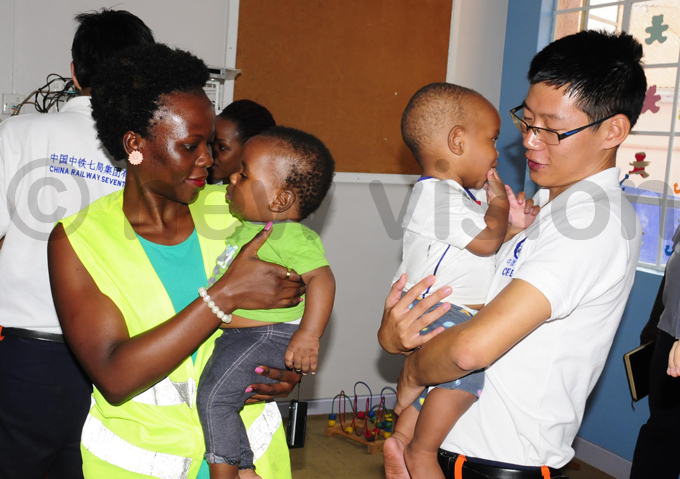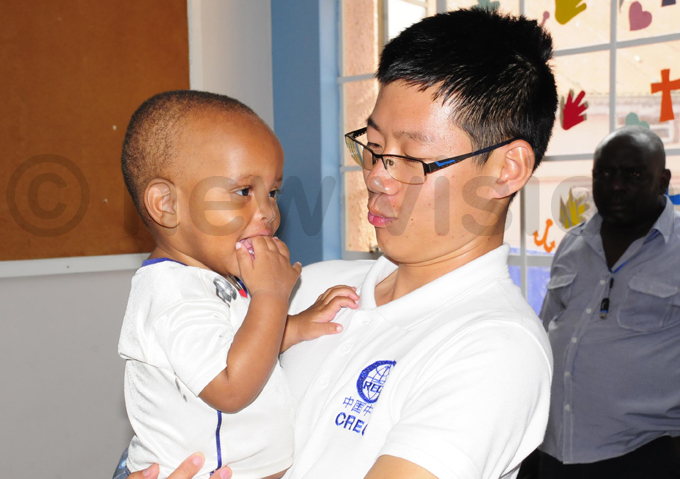Construction workers responsible for most abandoned babies
The babies are sometimes sick, have injuries or infections and need urgent medical attention
Majority of the babies abandoned and later received by Sanyu Babies Home in Mengo belong to construction workers.
The men usually lure girls and married women living in the vicinity of ongoing large construction projects into casual sex and abandon them after they conceive and disappear or switch to another construction project according to the executive director of Sanyu Babies Home, Barbara Nankya Mutagubya.
She said that the women who are abandoned after conceiving are normally forced to throw away the babies after delivery or abandon the toddlers in some places like dustbins, trenches, churches and mosques, hospitals where residents find them and report to local councils or the police.
The babies are sometimes sick, have injuries or infections and need urgent medical attention, which takes much of their budget.
"These 'irresponsible' men have caused chaos in many areas, they sleep with girls and married women too, but disappear without a trace after the site is closed" she said.
Mutagubya however said they have been able to tress between 70 and 80 percent of the biological parents or relatives and have re-united them with their children.
She was speaking to workers from China Railways Seventh Group (CRSG) on Monday led by the project manager, Li Wan Hong, who donated an assortment of children's learning materials and play kits.


The home looks after 50 children, between one month and four years. The children include four pairs of twins.
Mutagubya said that Sanyu's biggest challenge is getting enough financial resources to meet the day to day demands of looking after the babies.
"We struggle to get financial resources to look after 50 children with different demands, we need food, medical care and other demands" she said. The home has teachers who train the children to get early skills before they are given away when they reach four years.
"Our biggest joy is when we re-unite a baby with its biological parents or family members, but in case we fail, we give them to foster parents who apply to adopt them or surrender them to orphanages" said Mildred Nantongo, a social worker at the home.
Nantongo said some of the babies are brought to the home when they are sick and need special attention.
"Some of the babies are discovered by dogs from dustbins, some are retrieved from pit latrines or from trenches and have serious infections that need medical attention" she said, adding that the home needs funds to meet their demands.
Hong said they would ensure they get more assistance in terms of material donations and appealed to corporate companies to continue aiding the home.
"We need to help these babies to survive and grow healthy because they are the future of any country" he said.